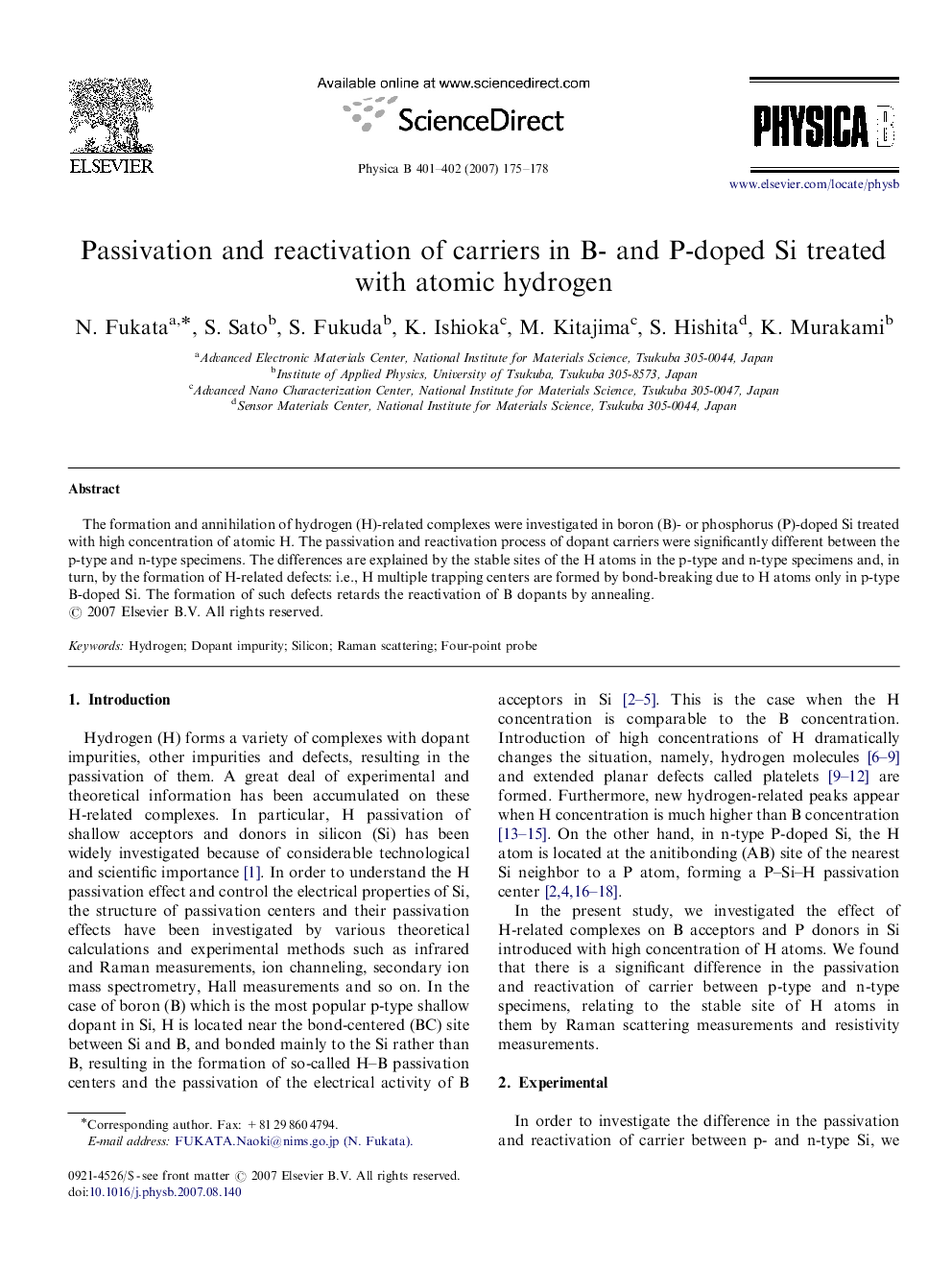| Article ID | Journal | Published Year | Pages | File Type |
|---|---|---|---|---|
| 1814972 | Physica B: Condensed Matter | 2007 | 4 Pages |
Abstract
The formation and annihilation of hydrogen (H)-related complexes were investigated in boron (B)- or phosphorus (P)-doped Si treated with high concentration of atomic H. The passivation and reactivation process of dopant carriers were significantly different between the p-type and n-type specimens. The differences are explained by the stable sites of the H atoms in the p-type and n-type specimens and, in turn, by the formation of H-related defects: i.e., H multiple trapping centers are formed by bond-breaking due to H atoms only in p-type B-doped Si. The formation of such defects retards the reactivation of B dopants by annealing.
Related Topics
Physical Sciences and Engineering
Physics and Astronomy
Condensed Matter Physics
Authors
N. Fukata, S. Sato, S. Fukuda, K. Ishioka, M. Kitajima, S. Hishita, K. Murakami,
